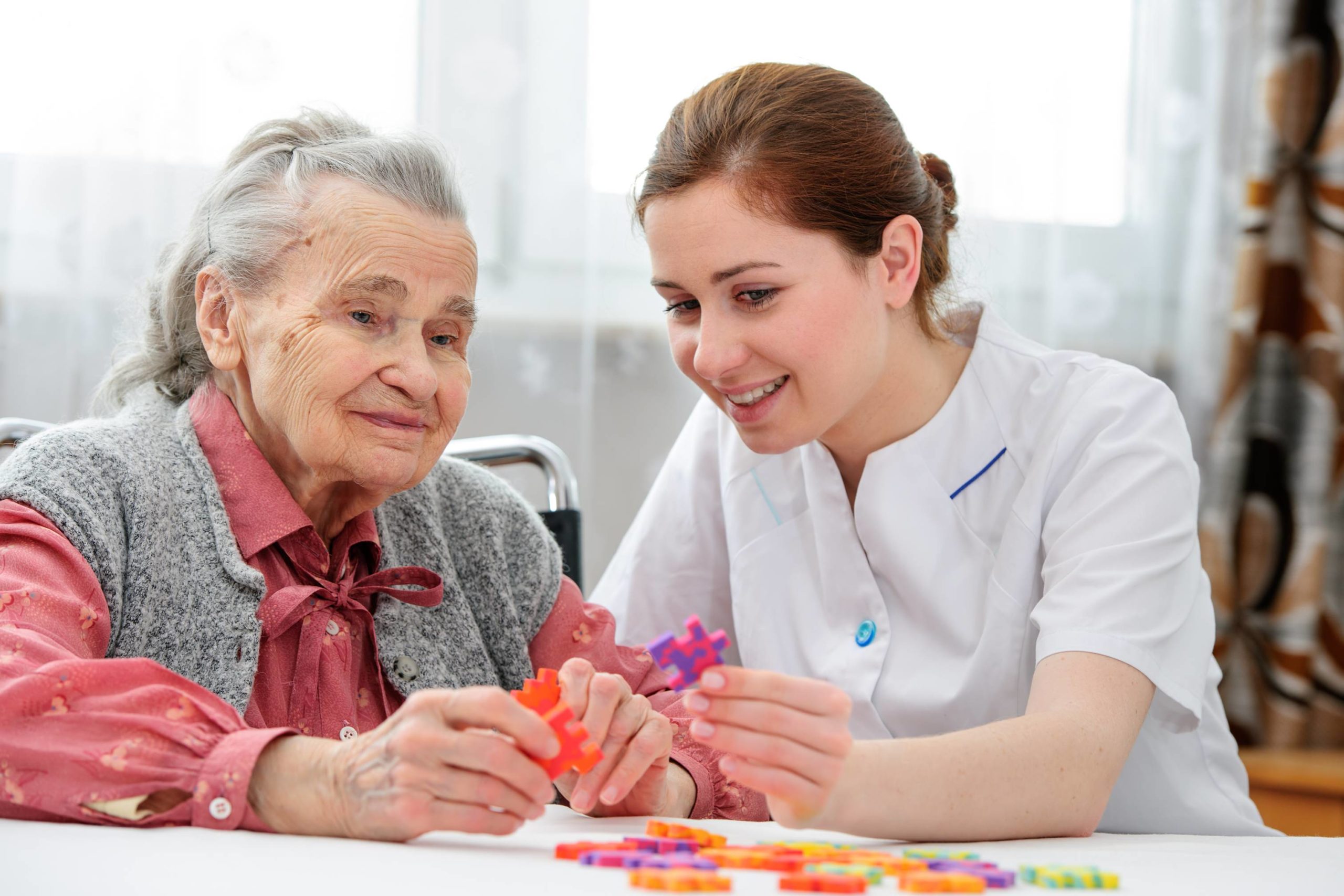
Dementia Care
Dementia is a devastating condition and it can be frustrating for caregivers. But there are things caregivers can do to improve the quality of life for the person with dementia, and the quality of their own lives. We’ll talk about some of those things in this guide.
Dementia is an umbrella term for many diseases that result in loss of language, memory, personality, and judgment, and results in changed behavior. It can be caused by many things: Alzheimer’s disease, Parkinson’s disease, stroke, and brain tumor are a few.
Early signs are sometimes minor problems — like misplacing things around the house or forgetting appointments — things we all do once in a while. But as the disease advances symptoms become more severe and more frequent. This process can happen suddenly, or it may occur slowly over years. The following symptoms are common in moderate to severe disease:
- Inability to recognize close family members
- Trouble speaking
- Unable to walk without help
- Help needed to use the bathroom
- Reminders and help needed to eat
- Change in waking and sleeping times
- Agitation or restlessness, especially in the evening
- Increased frequency of infections and pneumonia
In the final stages of illness, the patient may be:
- Confined to bed
- Contracted (arms and legs stiffen in a curled up position)
- Unable to speak
- Sleeping most of the time
- Not eating
- Unable to swallow
If you have questions about symptoms or the cause of advanced dementia, ask your Pathways healthcare provider.
Alzheimer’s Dementia Progression
- Stage 1
- Appears as normal adult
- No functional decline.
- Stage 2
- Appears as normal, older adult
- Personal awareness of some functional decline.
- Stage 3
- Early Alzheimer’s
- Noticeable deficits in demanding job situations.
- Stage 4
- Mild Alzheimer’s
- Needs help in complicated tasks, such as handling finances or planning a party.
- Stage 5
- Moderate
- Needs help to choose proper clothing.
- Stage 6
- Moderately severe
- Needs help to dress, bathe and use the toilet. Is incontinent of urine and stool.
- Stage 7
- Severe
- Loses ability to speak more than about 6 intelligible words. Loses ability to walk, sit up, smile, and hold up the head.
Patients at Stage 7 are appropriate for hospice. Earlier stages may be appropriate when there are other diseases also involved.

